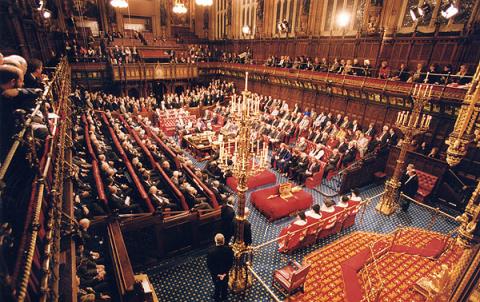Let's put an end to obsequiousness in public life

An insistence on deference - and the inference that some people matter more than others - corrupts our culture and demeans our citizens. By Vincent Browne.
A seemingly trivial edict was issued by an unidentified Fine Gael apparatchik, or, more probably, initiated by some prematurely waist-coated self-important Fine Gael bigwig, and was hilariously lampooned by Miriam Lord in the Irish Times last Wednesday. Trivial in itself but suggestive of a wicked mentality, a mentality that has caused much harm over the ages and that continues to poison our public culture.
It is the directive issued to Fine Gael parliamentary staff which ran as follows: "Staff are at liberty to use first name terms, if appropriate, within offices. However, in the public areas of the House, staff should address members with their correct title (Deputy/Senator), as they may be in the company of business people/constituents/representatives or public/private organisations."
To many readers this may seem of little consequence, all the more so at a time when belittlement is not just a personal issue now but a national one, a belittlement underlined by the revelation that the Germans are overseeing the detail of our planned budgetary arrangements, quite apart from the ECB, the IMF and the EU Commission.
That latter supervision, we were told during the week, is of a such microscopic nature that not alone do we have to assure our masters we are going to meet the targets they have set for us on our fiscal arrangements but we have to seek their approval on every iota of the measure whereby we were going to achieve this.
Not just that, but we will have to agree to a change to the EU constitutional architecture, whereby this microscopic oversight will be a continuing feature of our arrangements for ever more.
The insistence on underlings referring in public to their betters with the use of an appropriate title is insidious. For outside formal occasions, titles are and have always been, instruments of domination and subjection, conveying a hierarchy of entitlement and respect.
Those permissible formal occasions are meetings where the chairperson, chosen to regulate the conduct of such meetings in accordance with agreed procedures, may reasonably be referred to as "chairperson". Meetings of such kind would include parliamentary sessions and courts of justice. But that's it.
All other titles are culturally sinister and undermining of the ideal of the equality of persons which should inform all our public dealings. Obviously, the formal appellations of "Lord" and "Sir" which are part of the ethos of the culture of our neighbouring island are not just ludicrous but depraved - conveying a justification for an exploitative class system.
Our Constitution decrees: Titles of nobility shall not be conferred by the state; (and) no title of nobility or of honour may be accepted by any citizen except with the prior approval of the government. A similar provision was in the Constitution of the Free State.
It is reasonable to suppose this was prompted in part by a republican impulse to do with the equality of persons - there was also an apprehension that the British might continue to confer titles on Irish citizens after Independence. But that equality impulse seems long suppressed.
Now it is commonplace to grovel in front of the judiciary, even outside the ambit of courts, by references to them as "His (Her) Honourable Mr (Ms) Justice Big Wig." But over the years it has got worse. Ministers now are invariably conferred with the title "Minister", likewise "Taoiseach", "Tánaiste" and so on. Medical practitioners regularly refer to themselves as "doctor", likewise academics who have passed some exam, even academics who work in the arena of equality(!). Priests are rarely referred to by their names, instead "Father", ditto bishops, archbishops, cardinals and even old Red Socks himself!
Where did this come from? The usual response is: it describes their function. But who calls carpenters with the title "carpenter"? Likewise electricians, bus and taxi drivers, barmen, bar women, shop attendants, hairdressers, waitresses, waiters and undertakers.
I think the insidiousness of this is illustrated best by the use of a seemingly inoffensive title, "Mister". In the small village where I come from in Co Limerick, those called "Mister" were an elite, socially far above hoi polloi.
It was a practice that did quite a bit of damage. It conveyed to the members of the hoi polloi their station in life was inferior to the "Misters", "Misuses" and "Misses" a sense that hoi polloi internalised, rendering the subjugation even more cruel.
RTÉ presenters variably address ministers as "Minister", the deference dripping from their lips. The deceits and hypocrisies of our domestic "rulers" were exposed again during the week over the Mullingar barracks and third level fees, and these demand full accountability.
Accountability is hindered by deference, as it was for decades with bishops, with rogue hospital consultants, big-shot bankers, captains of industry and other important people. But, more than that, the persistent conveyance that some people matter, with the inference that others matter less, corrupts our public culture and demeans the majority of our citizens.
Gentlemen and ladies: this has got to stop!
Image top: UK Parliament.
